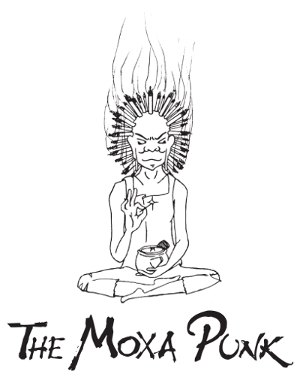some chinese medicine explanations

A journalist recently asked me for some explanations of people’s expectations of Chinese Medicine. She had been commissioned to write an article for the LUX* Resort group, and she probably hope for some pithy quotes that she could tie together in a brief wrapup. If only explaining Chinese Medicine were that easy.
The journalist asked me because I’m going there, I’m on their page.
Q: – Most people perceive conventional/western medicine as a quicker fix than most TCM techniques. You offer acupuncture, moxibustion, herbal medicine, massage and cupping. Can some of these have an immediate effect in some cases? What kind of symptoms/issues respond this quickly? And are some best experienced as a series of treatments that accumulate a result over time – what kind of issues need longterm assistance?
A: While many think that conventional medicine offers a quick fix for a problem but Chinese Medicine treatments are long-term, they are only thinking of things like taking an analgesic for an acute headache, or having a recent bacterial infection cleared by taking anti-biotics. But for a lot of chronic and debilitating conditions conventional medicine offers no quick fix but only life-long treatment. For example many people with diabetes, high blood cholesterol, heart conditions, and even gastric reflux are told that they will always need to take a medication.
Like conventional medicine, Chinese medicine gets quick results with acute conditions such as a new musculo-skeletal injury or a recently acquired cold or flu. Someone with acute back pain may recover with only one or two acupuncture treatments, and prompt Chinese medicine treatment at the first sign of a cold or flu often prevents more serious symptoms developing. But more long term conditions need more treatment. A general guide is that a person will need a month of treatment for each year that they have had a condition. Perhaps Chinese medicine has a reputation for taking longer to work because people only come to see us after they have suffered for some time.
Sometimes Chinese medicine may bring people with long-term conditions to a point where they feel they are healthy enough that treatment can be discontinued, and this may happen for conditions for which the alternative is life-long medication. Other times we can do no better than our conventional medicine colleagues and a patient may need continuing treatment to manage a chronic condition.
As well as the treatments practitioners give patients, the acupuncture, cupping, massage, and herbal medicine, Chinese medicine is also eating the right foods, trying to live a balanced life, and health maintenance practices such as taiqi, qigong, and yangshen. Together they combine over time to improve the lives of people with long-term conditions.
Q: In your opinion, why is TCM such an important medical system?
A: Chinese Medicine is important as it provides an alternative to people who are not helped by conventional medicine, or to people whose personal or religious beliefs lead them to seek natural cures. It, like other traditional medicines, is an important source of heterodox knowledge that may be important when orthodox approaches no longer work. For instance if increasing anti-biotic resistance means that new approaches to treating bacterial diseases should be examined, it could be that traditional approaches may provide knowledge that would have been lost if the traditional medicines had fallen into disuse. In a way it is like the collection of heritage seeds to provide alternatives to commercial mono-culture varieties if they become susceptible to disease or environmental change. We like to think that it is not just the medicines we use, but the way we diagnose and treat offers a useful alternative to conventional empirical and reductionist approaches.
Chinese medicine is also important as it is not just a historical record of traditional medicine practices, but a continuing practice. In China, Japan, and Korea it is an orthodox stream of contemporary medicine that is provided in State hospitals and treats millions of patients each year. With increasing Chinese influence in the West it will become more orthodox here, for example a TCM hospital costing 88 million euro is to be built in Barcelona, and Australia’s Free Trade Agreement allows guaranteed entry to Australia for up to 1800 Chinese TCM practitioners a year.
Q: What do your clients most appreciate about your clinic/treatments? What do you think most attracts the modern day professional to trying TCM?
A: A modern day professional comes to see us when they get no relief from conventional treatments, or when their own research leads them to believe that we offer something that could be effective. For the last few years many have sought TCM treatment that improves fertility, as their own research has convinced them that it is effective, particularly in enhancing the generally low success rates of IVF therapy.
And many people like the way we do medicine. We talk to people and find out how they feel. There are many fantastic conventional doctors in practice, and conventional medicine saves lives and relieves illness. But the reductionist approach is always to label a disease and treat it. We treat people, and people like that.

Comments are Disabled